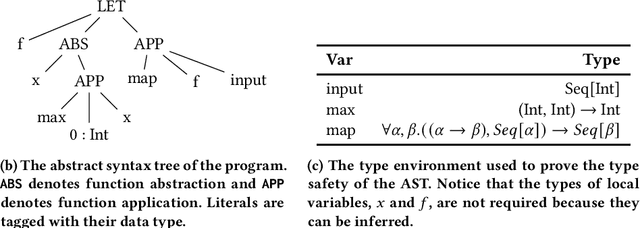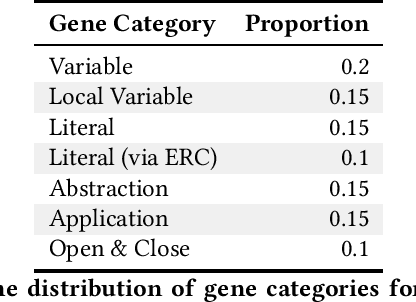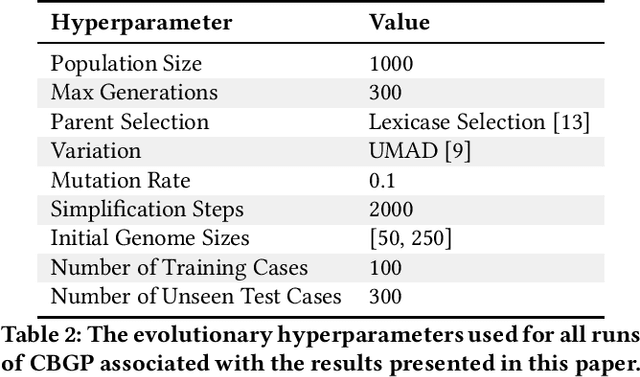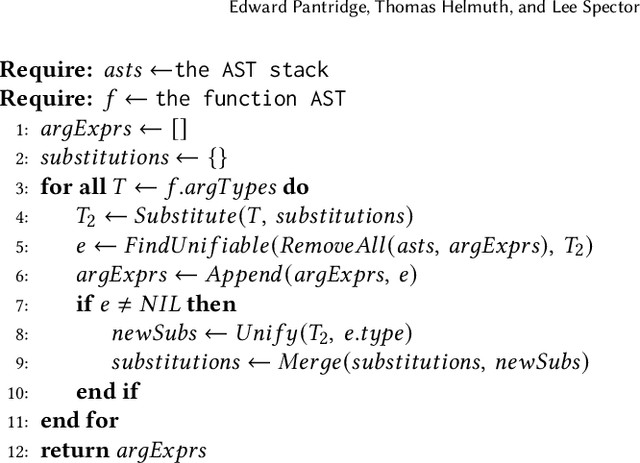Functional Code Building Genetic Programming
Paper and Code
Jun 09, 2022



General program synthesis has become an important application area for genetic programming (GP), and for artificial intelligence more generally. Code Building Genetic Programming (CBGP) is a recently introduced GP method for general program synthesis that leverages reflection and first class specifications to support the evolution of programs that may use arbitrary data types, polymorphism, and functions drawn from existing codebases. However, neither a formal description nor a thorough benchmarking of CBGP have yet been reported. In this work, we formalize the method of CBGP using algorithms from type theory. Specially, we show that a functional programming language and a Hindley-Milner type system can be used to evolve type-safe programs using the process abstractly described in the original CBGP paper. Furthermore, we perform a comprehensive analysis of the search performance of this functional variant of CBGP compared to other contemporary GP program synthesis methods.
 Add to Chrome
Add to Chrome Add to Firefox
Add to Firefox Add to Edge
Add to Edge